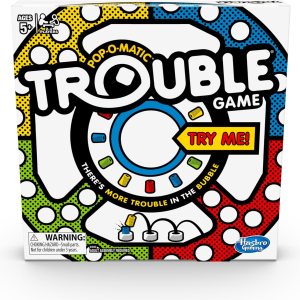Navigating childhood and adolescence is a journey full of growth, discovery, and yes—challenges. Among these challenges, peer pressure often stands out as a powerful force that can leave both kids and parents feeling uncertain and concerned. As caregivers, it’s natural to want to protect our children from negative influences, but helping them develop the confidence and skills to handle peer pressure on their own is equally important. In this article, we’ll explore compassionate and practical ways to support your child as they learn to make positive choices, build resilience, and stay true to themselves—no matter what their friends may say or do.
Table of Contents
- Understanding the Roots of Peer Pressure and Its Impact on Your Child
- Building Open Communication to Create a Safe Space for Sharing
- Equipping Your Child with Practical Strategies to Resist Negative Influences
- Encouraging Positive Friendships and Boosting Self-Confidence
- Future Outlook
Understanding the Roots of Peer Pressure and Its Impact on Your Child
At the heart of peer pressure lies the fundamental human desire to belong and be accepted. Children, especially during their formative years, are highly sensitive to social cues from their peers. This desire often leads them to conform, sometimes at the expense of their own values and judgment. Understanding why your child feels pressured is crucial: it’s not merely about peer interaction but also about their need to build identity, gain approval, and avoid exclusion. The powerful influence of shared activities, popular trends, and group dynamics creates an environment where the fear of being “left out” can easily override their better instincts.
The impact of peer pressure is multifaceted—while it can sometimes encourage positive behaviors such as teamwork and academic motivation, it more often carries risks. Children under persistent pressure may experience stress, lowered self-esteem, and even engage in risky actions just to fit in. It’s important to recognize the subtle signs, including sudden changes in behavior, secretiveness, or withdrawal from family time. Supporting your child involves acknowledging these pressures and offering reassurance. Encouraging open dialogue and emphasizing core values help them build resilience, allowing a healthy balance between individual growth and social harmony.
- Belonging: The innate need to be accepted by peers
- Identity formation: Experimenting to find one’s place in the world
- Social conformity: Aligning behaviors and attitudes with group norms
- Emotional vulnerability: Sensitivity to exclusion and rejection
Building Open Communication to Create a Safe Space for Sharing
Establishing an environment where your child feels comfortable expressing their feelings without fear of judgment is crucial. This kind of atmosphere encourages honesty and openness, allowing your child to share experiences and dilemmas they face with peers. Make it a habit to listen actively, showing genuine interest in what they say rather than rushing to offer solutions. Simple gestures like eye contact, nodding, and reflective questions can convey your support effectively, helping your child realize that their voice is valued no matter what. This foundation of trust is the first step in empowering them to resist negative peer pressure.
Encourage regular conversations at times when your child feels most relaxed, such as during car rides or casual mealtimes. You can gently open dialogue using open-ended questions and share stories of your own experiences with peer challenges to normalize the struggles. Consider incorporating some of these supportive habits into your routine:
- Validate emotions: Acknowledge their feelings without immediately trying to fix the problem.
- Discuss hypothetical scenarios: Explore how they might handle different social pressures.
- Reaffirm unconditional love: Remind your child that your acceptance isn’t dependent on their choices but on who they are.
By nurturing this safe space, you equip your child with emotional resilience and the confidence to stand firm against peer influence.
Equipping Your Child with Practical Strategies to Resist Negative Influences
Teaching children to stand firm against negative influences starts with nurturing self-confidence and critical thinking skills. Encourage your child to ask questions and evaluate situations rather than simply following the crowd. Role-playing scenarios at home can help them practice responses to pressure, such as saying “no” assertively or seeking help when unsure. Just as important is fostering open communication, so your child feels comfortable discussing peer challenges without fear of judgment or punishment.
Equipping your child involves providing practical tools they can carry into everyday interactions:
- Identifying trusted allies: Friends or adults they can turn to for support.
- Setting personal boundaries: Understanding their values and limits clearly.
- Developing refusal skills: Finding polite yet firm ways to decline unwanted requests.
- Building resilience: Learning to bounce back from setbacks without losing self-esteem.
Empowered with these strategies, children are better positioned to recognize and resist negative pressures, making choices that affirm their individuality and well-being.
Encouraging Positive Friendships and Boosting Self-Confidence
Fostering a circle of supportive friends can act as a powerful buffer against peer pressure. Encourage your child to build relationships with peers who demonstrate kindness, respect, and positive values. You might suggest activities like joining clubs, sports teams, or interest groups where they can naturally connect with like-minded children. It’s important for your child to recognize that friendships based on mutual support can uplift their spirit and reinforce their own sense of worth. When they feel secure in these relationships, they are less likely to give in to negative influences.
Boosting self-confidence is equally vital in helping your child resist unwanted pressures. Celebrate their achievements, big or small, and remind them of their unique strengths. Help them practice assertiveness by teaching phrases they can use to say “no” confidently. You can also:
- Encourage positive self-talk to combat self-doubt.
- Role-play scenarios to prepare for challenging social situations.
- Support hobbies that nurture a sense of accomplishment.
When children believe in themselves and feel valued, they gain the courage to stand firm in their choices and walk their own paths.
Future Outlook
Navigating the twists and turns of peer pressure is no easy task—for kids or parents. But with patience, open communication, and a foundation of trust, you can empower your child to make choices that reflect their true values and confidence. Remember, it’s okay for them to stumble along the way; what matters most is that they know you’re there to support them every step of the journey. Together, you can help your child not just survive peer pressure, but grow stronger and more self-assured because of it.
Related Products
-
Sale!
Easy@Home 50 Ovulation Test Strips and 20 Pregnanc…
Mom Original price was: $19.98.$12.81Current price is: $12.81. -
Sale!
Regal Games Card Games for Kids – Go Fish, Crazy 8…
Kids Original price was: $16.99.$12.99Current price is: $12.99. -
J.VER Men’s Cotton Linen Short Sleeve Shirts Casua…
Clothing $19.99







